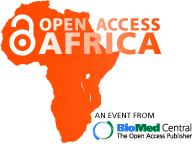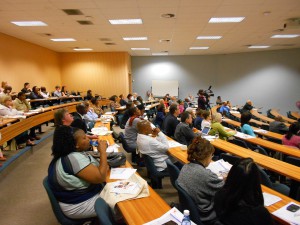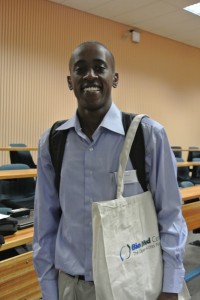 Last week was a significant time for open access in Africa. BioMed Central’s third Open Access Africa conference at the University of Cape Town (UCT), was followed by the Berlin10 open access meeting, at the University of Stellenbosch. Both events were so rich in content that it is hard to do them justice in a blog. Luckily for me, this <a href=”
Last week was a significant time for open access in Africa. BioMed Central’s third Open Access Africa conference at the University of Cape Town (UCT), was followed by the Berlin10 open access meeting, at the University of Stellenbosch. Both events were so rich in content that it is hard to do them justice in a blog. Luckily for me, this <a href=”
Updates and reflections from Open Access Africa and Berlin 10 – 4-8 November 2012, Cape Town & Stellenbosch, South Africa – Jonathan Harle, Programmes Manager at the Association of Commonwealth Universities (@jonharle)
https://storify.com/jonharle/open-access-africa-and-berlin-10″>storify by Jonathan Harle of the Association of Commonwealth Universities, provides an excellent commentary.
I will touch on some of the points raised at Open Access Africa, which was a refreshing chance to take a detailed look at the implications of open access for African research. UCT provided a great setting, with impressive representation from projects such as the OpenUCT Initiative and the Scholarly Communications in Africa Programme. Complex issues were explored through the presentations and discussion amongst the excellent speakers and delegates.
The event kicked off with an entertaining and meaningful explanation of open access through this video. Deborah Kahn  (Publishing Director, BioMed Central) reminded us that open access journals employ different business models but the same editorial quality standards as other journals.
(Publishing Director, BioMed Central) reminded us that open access journals employ different business models but the same editorial quality standards as other journals.
The use of the Impact Factor to assess individual researchers was condemned a number of times, with Eve Gray describing it as a ‘car crash’ for African researchers, partly due to the lack of developing country research in the database that is used to make the calculation. Michelle Willmers spoke about incentive and reward systems for achieving impact through research, and the current focus on prestige instead of relevance. There was also encouragement to think beyond the journal in terms of how research is communicated.
The importance of African journals came through strongly. Susan Murray of African Journals Online (AJOL) pointed out that development of publishing capacity is often overlooked in work to strengthen research capacity in African higher education. Marcel Hommel, Editor-in-Chief of Malaria Journal , showed that 90% of malaria mortality is in Africa but less than 2% of malaria articles are published in African journals. Conrad Ononhinmin, co-ordinator of the Nigerian open access group, questioned the effect on African journals of policies employed by open access publishers based in the North to waive article-processing charges for authors from developing countries.
The power of students as advocates for open access was beautifully demonstrated by Daniel Mutonga (pictured left) from the Medical Students Association of Kenya (MSAKE); “If your professors can’t read it, they can’t teach it”. That was backed up by Laura Czerniewicz, pointing out that students are often the most ardent advocates as they realise that when they leave university they will lose access to subscription content.
Students Association of Kenya (MSAKE); “If your professors can’t read it, they can’t teach it”. That was backed up by Laura Czerniewicz, pointing out that students are often the most ardent advocates as they realise that when they leave university they will lose access to subscription content.
The Wellcome Trust, the World Bank, and the Department for International Development (UK) demonstrated the progressive thinking of their organizations in realizing the value of making their research and data openly available. It is expected that more organizations will take this approach in the future. Conferences such as Open Access Africa, help the relevant parties to be prepared for it and to make the most of it.
We met some wonderful people working in and around scholarly communication, and we are really pleased to have the opportunity to contribute and to work with them to help improve access to academic literature in Africa. The slides and videos of presentations will shortly be available here.
In the meantime, take a look at Jonathan Harle’s storify, and get in touch if you’d like to know more about any of the issues discussed.
Also as part of this year’s Open Access Africa event we have published a thematic series, Open Access Africa: Showcasing African research, highlight the quality and the breadth of the research being carried out across Africa.
Ruth King, Publisher at BioMed Central
Comments